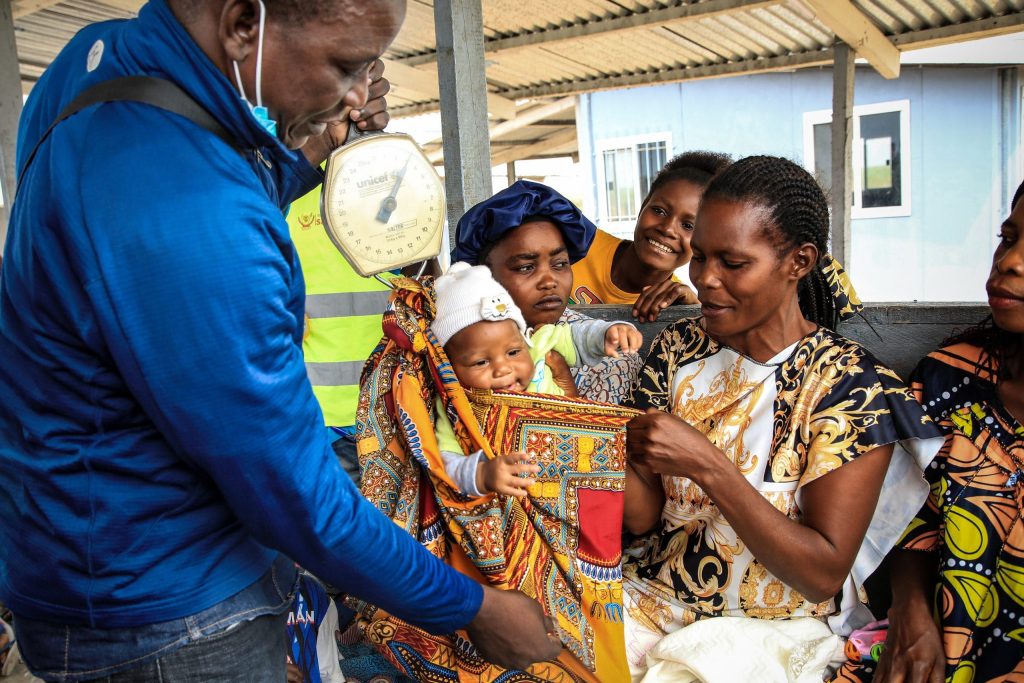
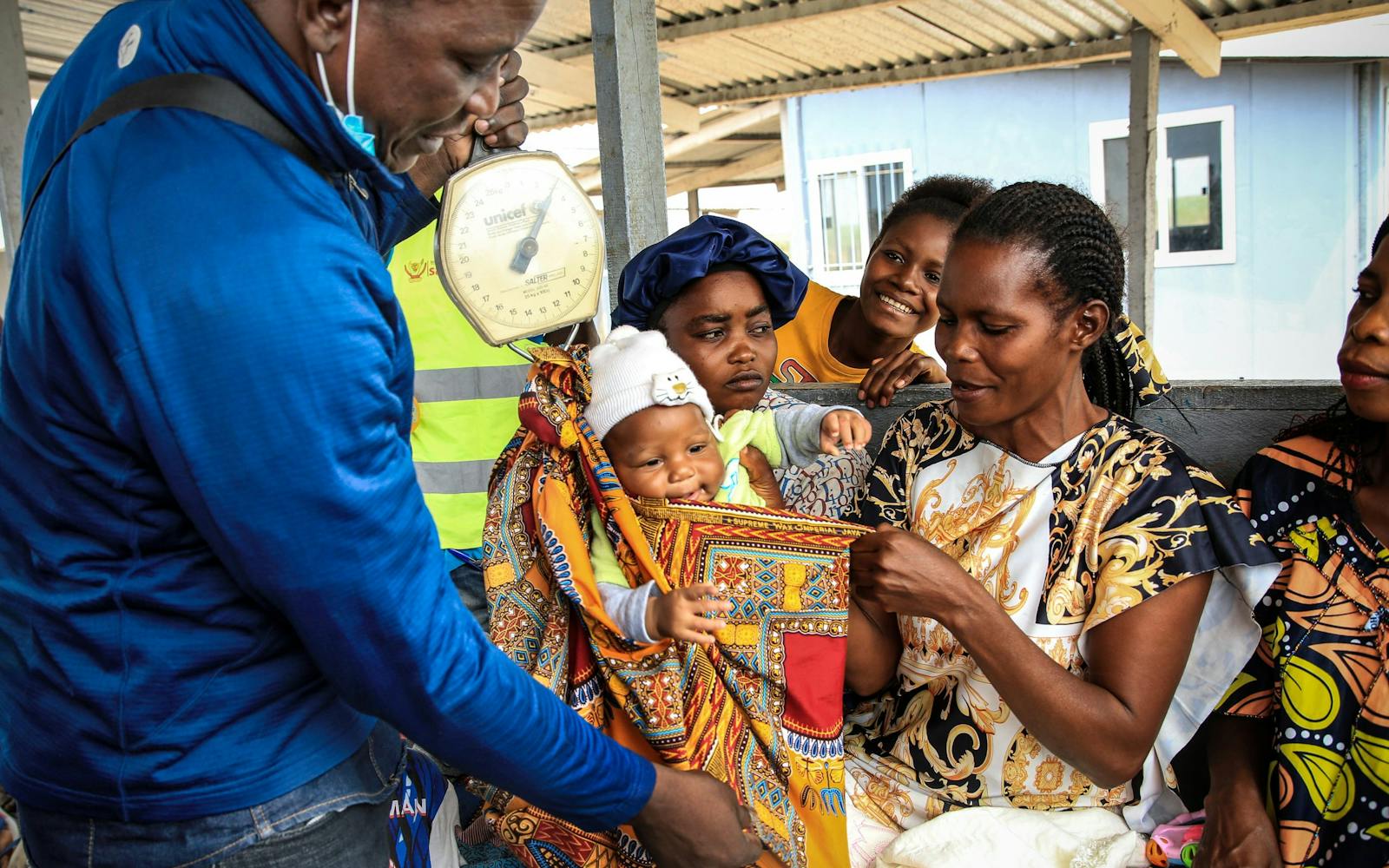
Members of an island group inside the Congo River deliver their kids to be vaccinated at a “vaccination day” clinic held every few months. picture: Ley Uwera.
as a end result of the Communications Officer for Shot@Life, Alice Zhang displays on her latest go to to the DRC and the challenges and alternatives to ship lifesaving vaccines to the nation’s most weak kids.
in direction of the backdrop of birds of paradise, the Congo River, and ladies carrying colourful Liputa attire, I arrived in Kinshasa properly aware of a heartbreaking actuality: that the Democratic Republic of Congo is amongst the very best 10 international places with basically the most zero-dose kids — kids who’ve by no means obtained a single vaccine. in exact actuality, the DRC is most possible going one in all many hardest places to stay on this planet, with steep costs of malnutrition and seventy three% residing in extreme poverty, making of us all of the extra weak to polio, measles, COVID-19, and fully different illnesses.
My talks with households, well being staff, and UN businesses inside the DRC hammered dwelling three key components about what can’t be ignored with a view to guarantee good well being and properly-being for all.
entry is all the things: Paving Good Roads & Sustaining the chilly Chain
In Kinshasa, a metropolis whose inhabitants is better than double that of NY metropolis, the affect of urbanization is visually apparent: site visitors is almost always congested alongside the precept — and solely — thoroughfare. Even in DRC’s capital, solely the sturdiest autos are in a place to navigate the bumpy, unpaved roads to entry native well being clinics and to ship lifesaving medical gives.
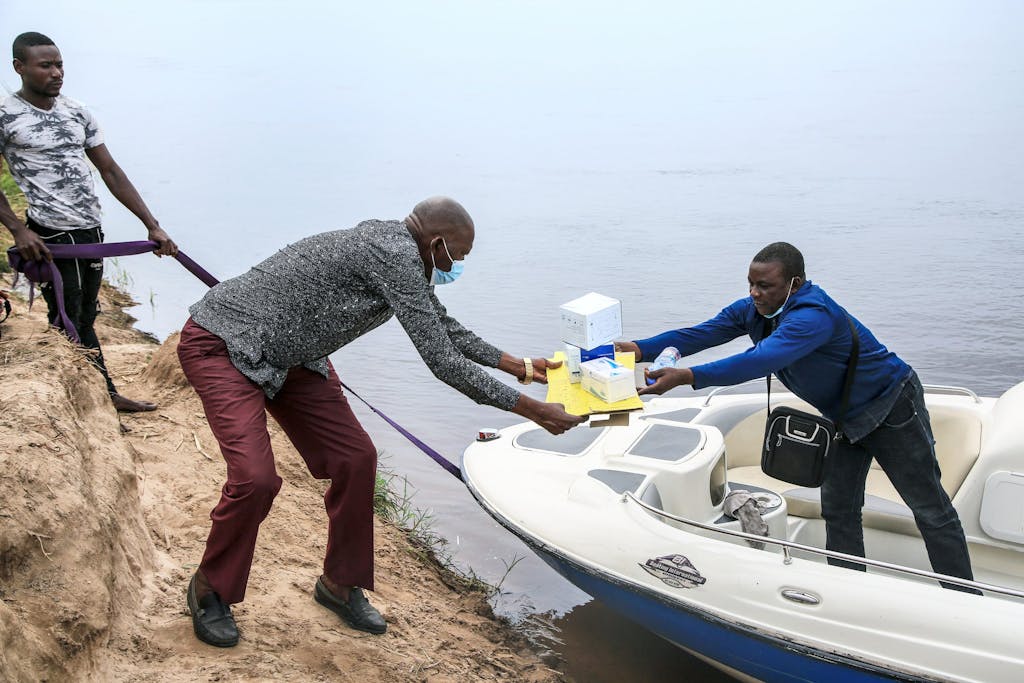
well being staff take a motorboat to island communities on the border of the Democratic Republic of Congo and the Congo, carrying with them vaccines and private defending gear. picture: Ley Uwera.
Consequently, the roads typically pose an ironic logistical roadblock: Vaccines rely on a regular chilly chain that has to run like clockwork. all by our go to to the photo voltaic-powered Kinkole vaccine warehouse, which shares better than 136 million doses of routine immunizations a yr, the warehouse supervisor defined that after a cargo cargo of vaccines arrives on the airport, it want to be immediately transported to 1 in all Kinkole’s 12 temperature-managed chilly rooms. Then, when the vaccines are ready to be distributed, they’re loaded onto refrigerated vans or small planes and delivered to regional well being clinics. Timing is essential. All it takes is a site visitors jam, inaccessible highway, or stunning gas scarcity for the vaccines to be delayed to their vacation spot or get too warmth in transit, thus altering into ineffective. Not solely would this lead to vaccine wastage, however in the end, it would hinder of us’s capability to acquire lifesaving immunizations, particularly in rural provinces the place flights are few and a lot between, or the place rocky paths fade into the dense forests of the Congo River Basin.
native organizations are implementing progressive options to these transportation-associated challenges. for event, some organizations are piloting vaccine deliveries with drones to hold away from unreliable floor transportation altogether. well being staff proceed to go to good lengths to attain every youngster, going door to door to deliver vaccines to every dwelling inside the neighborhood. however regardless of inventive options and the unrelenting willpower of well being staff, the actuality is that entry to vaccines is closely counting on infrastructure. The significance of protected, navigable, and properly-related roads — particularly inside Africa’s second-largest nation — can’t be overstated.
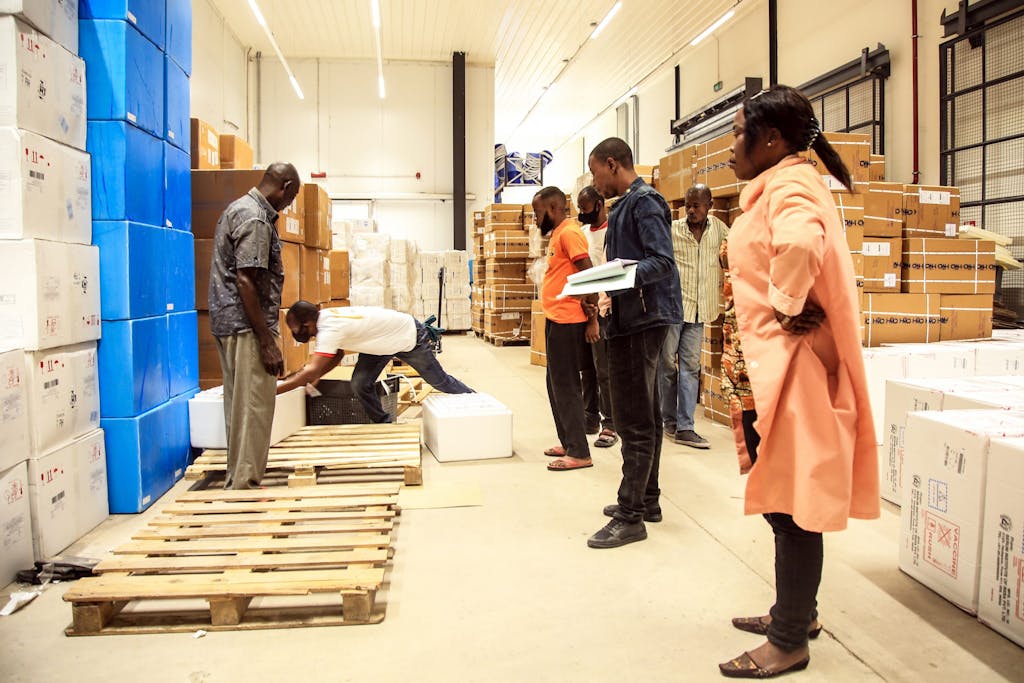
The Kinkole vaccine warehouse is strategically located shut to Kinshasa’s N’djili worldwide Airport. After receiving large vaccine shipments, staff should shortly unpackage gives to permit them to be saved in temperature-managed rooms. picture: Ley Uwera.
native and worldwide Cooperation is essential to Strengthening well being methods
Geopolitical challenges simply like the Kivu navy battle inside the japanese DRC even have a historic previous of straining the nation’s well being methods. all by the Ebola epidemic of 2018, which triggered better than 2,200 deaths, insurgent teams generally killed vaccinators and exacerbated each the outbreak and the warfare. To at present, the persevering with battle inhibits hundreds of of us — particularly ladies, refugees, and internally displaced individuals — from accessing the most important care and immunizations they want, ensuing from concern of violence.
on the identical time, the pandemic has taken an acute toll on well being methods inside the DRC: decrease than 2% of the inhabitants is vaccinated in direction of COVID-19. On prime of extreme vaccine hesitancy and preliminary difficulties receiving a gradual current of vaccines, docs and nurses have been on strike a quantity of occasions prior to now two years ensuing from an absence of commonplace pay and ample gear, inflicting routine vaccination costs to drop by as a lot as 10%.
nonetheless, all by my time inside the DRC, well being staff regularly harassed the want for improved illness surveillance to cease outbreaks earlier than they spiral uncontrolled. for event, there might even be simply one laboratory inside the DRC which will run the blood exams wished to substantiate a measles outbreak. In some situations, by the aim a pattern comes again constructive, it would most possible already be too late to save heaps of the kid. In a rustic the place better than 1.7 million kids missed their first dose of the measles vaccine in 2021, such gaps in well being infrastructure can have life-or-loss of life penalties.
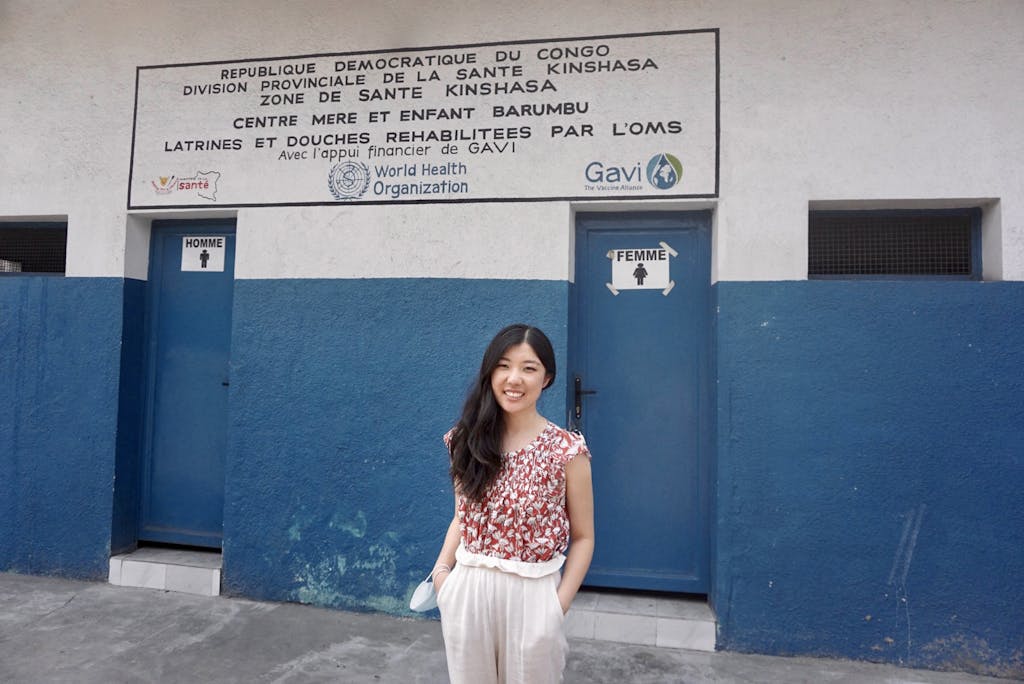
Shot@Life’s Alice Zhang stands exterior of the Barumbu well being clinic in Kinshasa. picture: Martha Rebour.
a lot of my work includes advocacy and education throughout the want for sturdy well being methods and bettering entry to lifesaving immunizations globally. however my go to to the DRC confirmed, in very exact phrases, why we will’t wait to shore up worldwide efforts like COVAX, the mannequin new fund for pandemic preparedness, and sustainably fund businesses comparable to a end result of the United Nations kids’s Fund (UNICEF) and the World well being group that work with native companions inside the DRC. with out the ample well being infrastructure and political cooperation wished on the nationwide diploma, multilateral efforts to save heaps of lives will stay tragically stunted.
A Human contact is essential
most possible basically the most memorable experiences of the journey was accompanying vaccinators to a distant island inside the Congo River. For this island group, immunization day is a large deal. They welcome exterior friends solely about as quickly as every three months, so when our boat pulled up — a journey which will take as a lot as an hour through canoe — your full island acquired here out to greet us. mothers launched their infants to be vaccinated, desperate to see if their youngster had gained weight since their final weigh-in. in the meantime, the older kids launched a makeshift soccer ball to play a pickup sport whereas ready for his or her siblings, and the boys who weren’t fishing gathered throughout the clinic, all people desperate to take part.
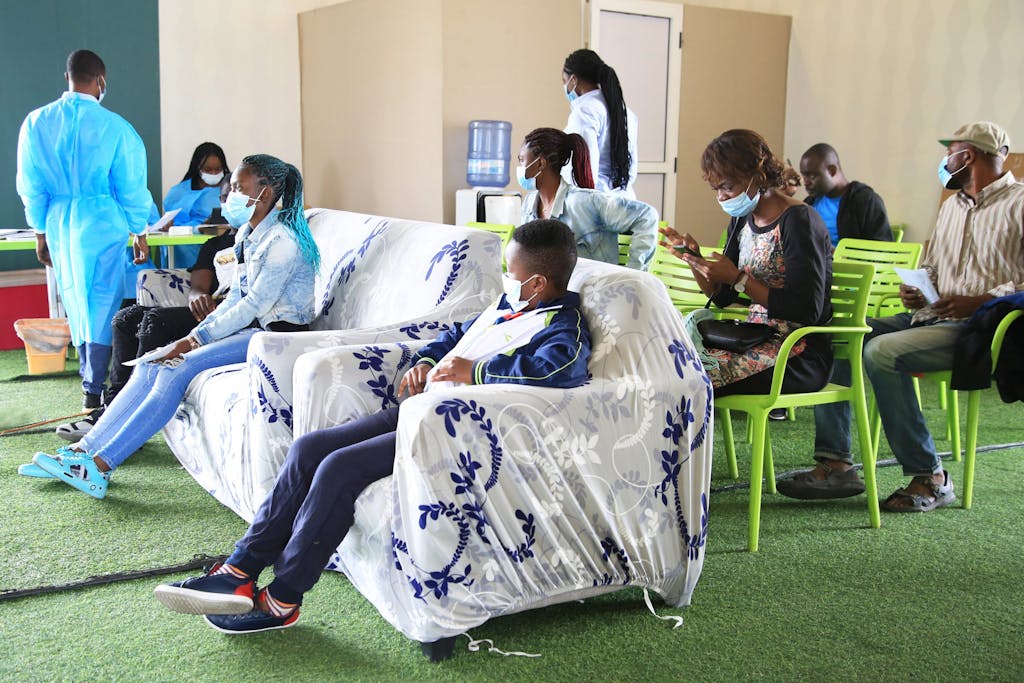
sufferers wait after receiving vaccinations at a vaccinodrome in Kinshasa. picture: Ley Uwera.
Being on the island that day and seeing vaccination teams in movement, i used to be reminded that good well being unlocks life’s potentialities and that vaccines actually do deliver us nearer to realizing the promise of well being for all. I noticed well being staff onerous at work, giving sugary syringes of rotavirus vaccine to infants or mixing measles vaccines and diluents with hawk-like focus. In fully different well being clinics round Kinshasa, I had watched as group well being staff diligently scanned their handwritten vaccination logs for empty rows, marking the households they wished to go to at dwelling to encourage them to deliver their kids again for subsequent doses. For all that the scientific miracle of vaccines does to save heaps of lives, it’s the human connection that gives science wings and strengthens communities.
all people deserves a shot at life, and there’s by no means been a extra important time to double down on worldwide well being efforts. Vaccines have the potential to save heaps of an further 1.5 million lives a yr, nonetheless the COVID-19 pandemic has led to basically the most important setback for routine immunization in a know-how. In 2021 alone, the quantity of zero-dose kids elevated by 37% to 18 million, a quantity not seen since 2005.
My latest go to to the DRC jogged my reminiscence that two seemingly reverse issues is most possible true on the identical time, like being sobered by the large problem of single-digit vaccination costs and concurrently impressed by the well being staff dedicated to defending kids in direction of illness. There’s heaps we now have achieved collectively, however there’s nonetheless heaps left to be executed. I’m grateful to the of us we met inside the DRC for reminding me of that.

